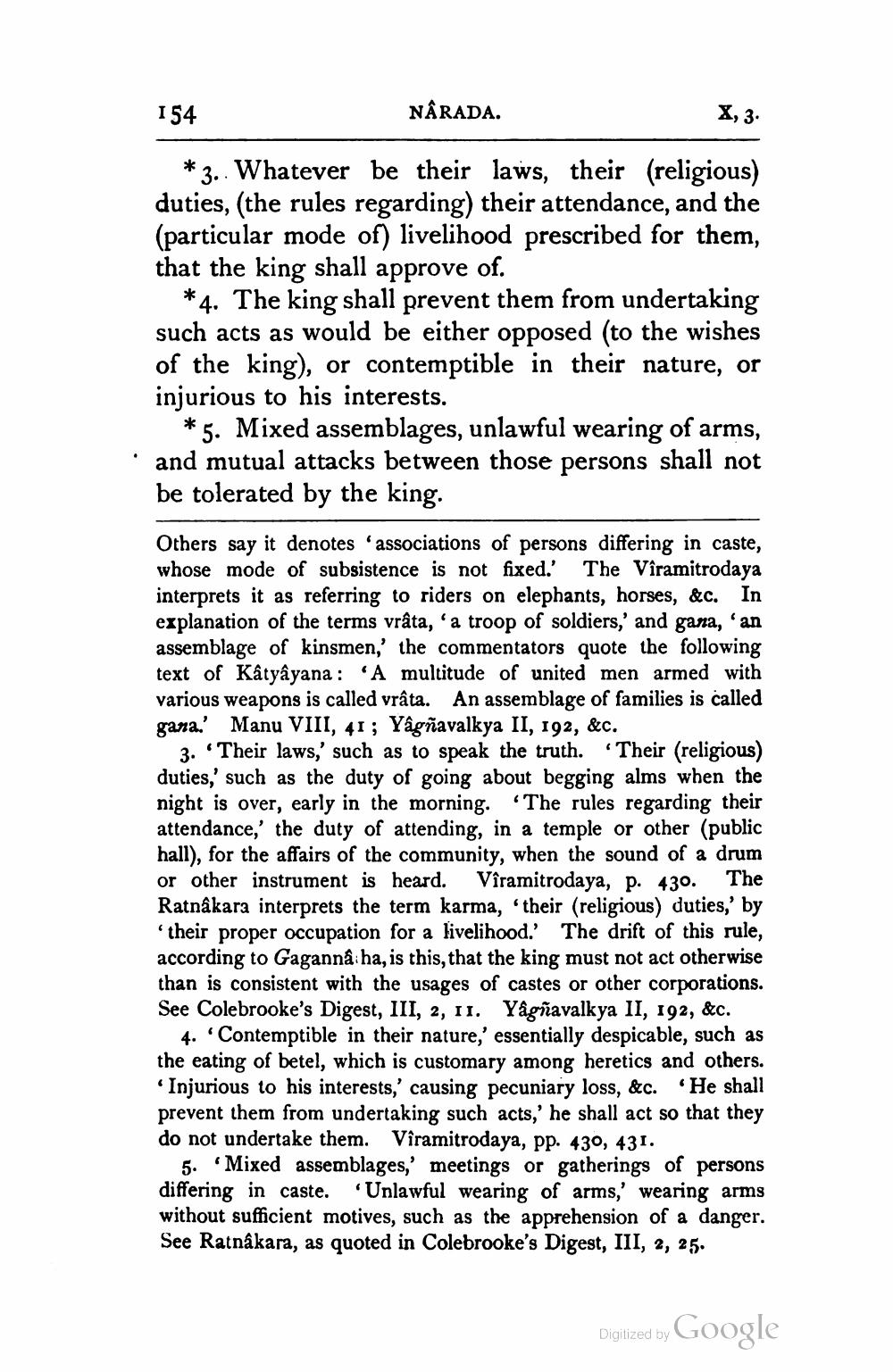________________
154
NÂRADA.
X, 3.
* 3.. Whatever be their laws, their (religious) duties, (the rules regarding) their attendance, and the (particular mode of) livelihood prescribed for them, that the king shall approve of.
*4. The king shall prevent them from undertaking such acts as would be either opposed to the wishes of the king), or contemptible in their nature, or injurious to his interests.
*5. Mixed assemblages, unlawful wearing of arms, and mutual attacks between those persons shall not be tolerated by the king.
Others say it denotes 'associations of persons differing in caste, whose mode of subsistence is not fixed.' The Vîramitrodaya interprets it as referring to riders on elephants, horses, &c. In explanation of the terms vrâta, 'a troop of soldiers,' and gana, 'an assemblage of kinsmen,' the commentators quote the following text of Kâtyâyana : 'A multitude of united men armed with various weapons is called vrâta. An assemblage of families is called gana.' Manu VIII, 41; Yâgñavalkya II, 192, &c.
3. 'Their laws,' such as to speak the truth. Their (religious) duties,' such as the duty of going about begging alms when the night is over, early in the morning. The rules regarding their attendance,' the duty of attending, in a temple or other (public hall), for the affairs of the community, when the sound of a drum or other instrument is heard. Vîramitrodaya, p. 430. The Ratnakara interprets the term karma, their (religious duties,' by 'their proper occupation for a livelihood.' The drift of this rule, according to Gagannå ha, is this, that the king must not act otherwise than is consistent with the usages of castes or other corporations. See Colebrooke's Digest, III, 2, 11. Yågñavalkya II, 192, &c.
4. 'Contemptible in their nature,' essentially despicable, such as the eating of betel, which is customary among heretics and others.
Injurious to his interests,' causing pecuniary loss, &c. He shall prevent them from undertaking such acts,' he shall act so that they do not undertake them. Viramitrodaya, pp. 430, 431.
5. Mixed assemblages,' meetings or gatherings of persons differing in caste. Unlawful wearing of arms,' wearing arms without sufficient motives, such as the apprehension of a danger. See Ratnakara, as quoted in Colebrooke's Digest, III, 2, 25.
Digitized by Google




